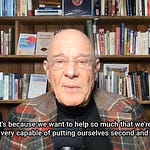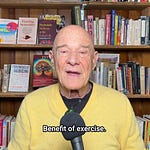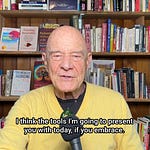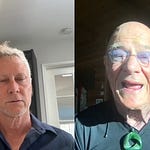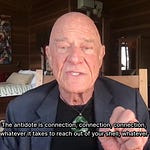Dear Friends,
Have you ever felt like giving up when faced with a seemingly insurmountable challenge?
I know I have. But what I've learned through my own experiences is that persistence and consistent effort can work wonders.
It all started with a devastating motorcycle accident that left me with both legs crushed. As I lay on the highway, I closed my eyes and prepared for the worst. But then, a voice inside me said these words:
"You can still make a contribution."
That was the moment I decided to fight for my life.
The doctors told me I'd never walk again, but I refused to accept that. After a grueling surgery, in which I had to persuade the surgeon not to amputate my legs, I set an ambitious goal for myself: to complete a triathlon within two years. It started with a single step, then two, then three. I kept pushing myself, day after day, week after week. And you know what? I did it. I completed that triathlon, even though I had to use crutches.
But my journey wasn't just about physical recovery. You see, exercise isn't just good for your body; it's also incredibly powerful for your mind. I often cite a study from Duke University, first brought to my attention by the great Robert Whitaker (author of Anatomy of an Epidemic), which found that exercise can be even more effective than medication for treating major depression.
The key is to start small and be consistent.
Whether it's a brisk walk around the block or a few push-ups during your work breaks, every little bit counts.
As I like to say, "A little something over a long period of time is a lot of something."
So, my challenge to you is this: set a small goal for yourself and stick to it. Whether it's physical, mental, or emotional, find something that you can work towards each and every day. And remember, you're not alone in this journey. We're all in this together.
I'd love to hear from you:
What small goal will you set for yourself today?
Share your thoughts in the comments below or send me a message on social media. Let's inspire each other to keep pushing forward, one step at a time.
Golden light,
Dr. Richard L. Miller
Takeaways
Exercise can be as effective as medication for treating major depression, according to a Duke University study.
Persistence and consistent effort are key to overcoming even the most daunting challenges.
Setting small, achievable goals and working towards them every day can lead to significant progress over time.
Exercise is not only beneficial for physical health but also for mental and emotional well-being.
Sharing our experiences and supporting one another can help us stay motivated and inspired on our journeys.
Links and Resources
Anatomy of an Epidemic: Magic Bullets, Psychiatric Drugs, and the Astonishing Rise of Mental Illness in America, by Robert Whitaker
Duke University Study: Exercise May Be Just As Effective As Medication For Treating Major Depression
My Books
Freeing Sexuality: Psychologists, Consent Teachers, Polyamory Experts, and Sex Workers Speak Out
Psychedelic Wisdom: The Astonishing Rewards of Mind-Altering Substances
Psychedelic Medicine: The Healing Powers of LSD, MDMA, Psilocybin, and Ayahuasca
Integral Psychedelic Therapy (co-edited with Jason A. Butler & Genesee Herzberg)





